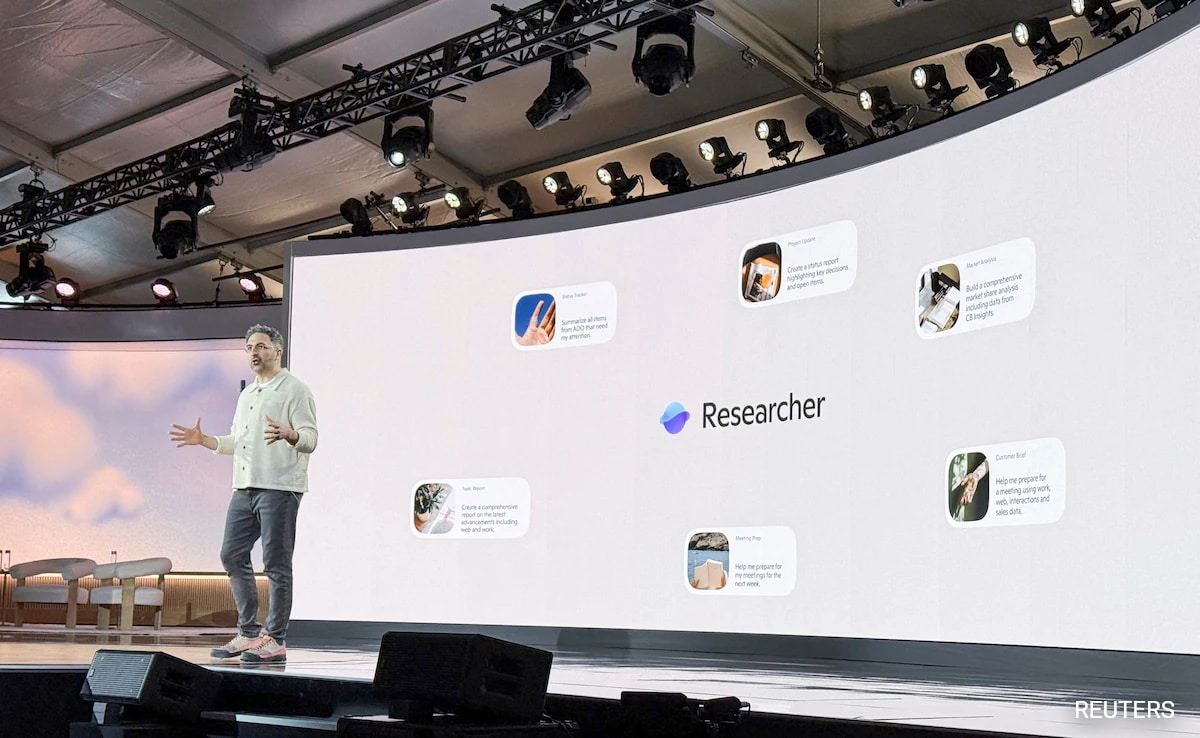Microsoft Faces Internal Unrest Amid Ongoing Controversy Over AI and Israel
In a dramatic turn of events at Microsoft’s 50th anniversary celebration held in Redmond, Washington, a pro-Palestinian employee interrupted CEO Mustafa Suleyman while he was discussing the company’s advancements in artificial intelligence. The protest is a stark reflection of the growing tensions and dissatisfaction among employees regarding Microsoft’s alleged role in Israel’s military operations.
Ibtihal Aboussad, an employee of Microsoft, disrupted the high-profile event by calling out Suleyman, stating, “You are a war profiteer. Stop using AI for genocide.” This public outcry was not just spontaneous; it underscored a larger narrative surrounding Microsoft’s involvement in technologies that have reportedly been utilized in military contexts, particularly in the ongoing conflict in Gaza. The incident raises significant questions about corporate responsibility and the ethical implications of AI technologies in warfare scenarios.
The protest intended to spotlight Microsoft’s controversial connections to Israel amidst ongoing humanitarian crises and the mounting death toll in Gaza. As per reports, on October 2023, Hamas launched attacks that resulted in significant casualties and the taking of hostages, magnifying the existing discord between the Israeli military and Palestinian factions. The subsequent military actions by Israel have led to devastating consequences, including a reported death toll exceeding 50,000 Palestinians and a humanitarian crisis affecting millions.
Amidst these turbulent times, it’s critical to understand the context of such protests and their objectives. Aboussad’s interruption was part of a broader movement among various firms and educational institutions facing backlash due to perceived complicity in humanitarian violations through technology.
The protest erupted on April 4, 2025, during a time of heightened awareness and scrutiny of corporate ethical practices. Microsoft, one of the foremost technology companies, has been implicated in recent investigations that suggest its AI models have been utilized within an Israeli military program responsible for selecting targets during conflicts in Gaza and Lebanon. These revelations have intensified internal and external criticisms against the company, emphasizing the urgent need for a reevaluation of corporate contracts and ethical standards in technology.
This wasn’t merely an isolated incident; it resonates with a wider pattern of protests within key tech giants as employees increasingly advocate for ethical considerations surrounding the technologies they work with. Microsoft’s response was succinct; the company stated that it offers channels for employees to voice their opinions, though it is expected that disruptions, especially those affecting business operations, should be managed appropriately.
However, the fallout from the protest leads to concerning reports about the consequences faced by Aboussad and another protesting employee. Following their public dissent, they reportedly lost access to their work accounts—a move that raises questions regarding freedom of expression within corporate settings.
The tension surrounding these technologies and corporate affiliations is exacerbated by the stark realities on the ground for individuals in war-torn regions. Reports indicate that the humanitarian crisis in Gaza has reached a critical point, wherein nearly the entire population of 2.3 million people has been displaced, grappling with severe shortages of food, water, and medical supplies. The dire situation has prompted not only protests but an urgent call for greater accountability from technology companies, including Microsoft.
This protest scenario is emblematic of a broader desire for significant change in the tech industry, where employees and stakeholders alike are increasingly unwilling to overlook the ramifications of their companies’ business dealings and their impact on global communities. As such, advocates are pushing for a more conscientious approach to technology deployment, especially in areas heavily affected by military conflict.
Moreover, the Israeli-Palestinian conflict constitutes a complex interplay of geopolitical dynamics that requires careful navigation. With allegations of genocide and war crimes being hurled at Israel, the global community has become more vigilant, demanding that companies take responsibility for their contributions to warfare through technology and data.
The importance of activism within corporate frameworks cannot be understated. In a world where technology becomes increasingly central to military actions, the need for ethical engagement is crucial. Protesters demand transparency and accountability from tech giants, pressing the industry to reconsider how these technologies are used and their consequences for civilian populations.
Aboussad’s protest reflects a rising tide of employee activism as workers seek to align their professional roles with personal ethics and values. Companies like Microsoft now face the dual challenge of maintaining business interests while addressing the ethical implications of their technological innovations.
In light of these developments, it is essential for corporations to engage in ongoing dialogue with their employees and the communities affected by their technologies. Building a culture of responsibility and transparency will not only improve the company’s public image but foster an environment where employees feel empowered to voice their concerns without fear of retaliation.
As the conversation surrounding corporate responsibility continues, it remains to be seen how Microsoft and other technology companies will adapt to these challenges. The future implications of AI and its role in warfare necessitate profound introspection and a commitment to ethical standards that prioritize human welfare.
DISCLAIMER
We have taken every measure to ensure that the information in this article and on our social media platforms is accurate, verified, and obtained from reliable sources. For feedback or complaints, please contact us at info@hamslive.com.


